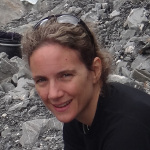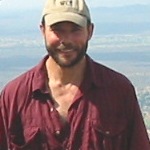Select program/project:
 |
Vice President, Field Conservation
Emma has over 15 years experience of conservation science and management in tropical forests, with a focus on large mammal ecology and population status. She has conducted fieldwork on apes in Indonesia, Uganda and Republic of Congo, and coordinated landscape-scale implementation of conservation assessment and wildlife monitoring programs for apes and elephants in Northern Congo and for tigers across South-East Asia. She played an instrumental role in the first regional conservation action plan for chimpanzees and gorillas in West Equatorial Africa in 2005 and documented new ape populations in Northern Congo in 2006 that revised the global estimate for western lowland gorillas. Her skills include scientific design and application of management-focused biodiversity monitoring programs and strategic evaluation of conservation outcomes, with a focus on law enforcement effectiveness. She holds a degree in Natural Sciences from Cambridge University and a PhD in cognitive ecology from the University of St Andrews. She has worked for the Wildlife Conservation Society since 1999. Emma is currently based in Gabon as a regional advisor on conservation effectiveness for WCS programs in Africa, and on law enforcement monitoring for WCS globally.
|
 |
Emma J Stokes
Vice President, Field Conservation
Emma has over 15 years experience of conservation science and management in tropical forests, with a focus on large mammal ecology and population status. She has conducted fieldwork on apes in Indonesia, Uganda and Republic of Congo, and coordinated landscape-scale implementation of conservation assessment and wildlife monitoring programs for apes and elephants in Northern Congo and for tigers across South-East Asia. She played an instrumental role in the first regional conservation action plan for chimpanzees and gorillas in West Equatorial Africa in 2005 and documented new ape populations in Northern Congo in 2006 that revised the global estimate for western lowland gorillas. Her skills include scientific design and application of management-focused biodiversity monitoring programs and strategic evaluation of conservation outcomes, with a focus on law enforcement effectiveness. She holds a degree in Natural Sciences from Cambridge University and a PhD in cognitive ecology from the University of St Andrews. She has worked for the Wildlife Conservation Society since 1999. Emma is currently based in Gabon as a regional advisor on conservation effectiveness for WCS programs in Africa, and on law enforcement monitoring for WCS globally.
|
|
 |
Director, Conservation Measures
As Director of Conservation Measures for the Wildlife Conservation Society, David Wilkie seeks to strengthen the practice and impact of WCS conservation worldwide. David joined WCS in 2001. Since then he has led efforts to ensure that WCS field programs identify explicit conservation objectives for which we hold ourselves accountable, and tactically monitor and report our conservation progress. Today he leads our 5-measures approach to evidence-based conservation.
He is a founder of the Conservation Measures Partnership – a joint venture of conservation NGOs committed to improving the practice of conservation by promoting adoption of a consensus-based set of standards for planning, implementation and measuring conservation impact. He was co-chair of the Bushmeat Crisis Task Force, and helped establish the Conservation Initiative on Human Rights. He is a member of the WCS Institutional Review Board for protection of human subjects. He is the director of the Ituri Forest Peoples’ Fund – a special project of Cultural Survival. David has over 30 years of experience working in international conservation in Central Africa, Central and South America and Asia. He is a Ph.D. wildlife ecologist with a post-doctoral anthropology specialization in the socio-economic drivers of natural resource use practices. His work covers the impacts of commercialization of non-timber forest products on forest conservation; the role that logging plays in the commercial wildlife trade; the role that income, prices, and taste preferences play in determining demand for wildlife; the use of conditional direct payments as a tool for biodiversity conservation in developing countries; and the use of satellite imagery, and agent-based, spatial simulations to model present and future tropical forest loss. He has published more than 140 peer reviewed articles and books.
|
 |
David S. Wilkie
Director, Conservation Measures
As Director of Conservation Measures for the Wildlife Conservation Society, David Wilkie seeks to strengthen the practice and impact of WCS conservation worldwide. David joined WCS in 2001. Since then he has led efforts to ensure that WCS field programs identify explicit conservation objectives for which we hold ourselves accountable, and tactically monitor and report our conservation progress. Today he leads our 5-measures approach to evidence-based conservation.
He is a founder of the Conservation Measures Partnership – a joint venture of conservation NGOs committed to improving the practice of conservation by promoting adoption of a consensus-based set of standards for planning, implementation and measuring conservation impact. He was co-chair of the Bushmeat Crisis Task Force, and helped establish the Conservation Initiative on Human Rights. He is a member of the WCS Institutional Review Board for protection of human subjects. He is the director of the Ituri Forest Peoples’ Fund – a special project of Cultural Survival. David has over 30 years of experience working in international conservation in Central Africa, Central and South America and Asia. He is a Ph.D. wildlife ecologist with a post-doctoral anthropology specialization in the socio-economic drivers of natural resource use practices. His work covers the impacts of commercialization of non-timber forest products on forest conservation; the role that logging plays in the commercial wildlife trade; the role that income, prices, and taste preferences play in determining demand for wildlife; the use of conditional direct payments as a tool for biodiversity conservation in developing countries; and the use of satellite imagery, and agent-based, spatial simulations to model present and future tropical forest loss. He has published more than 140 peer reviewed articles and books.
|
|
| Page 1 of 1 | First Previous Next Last |